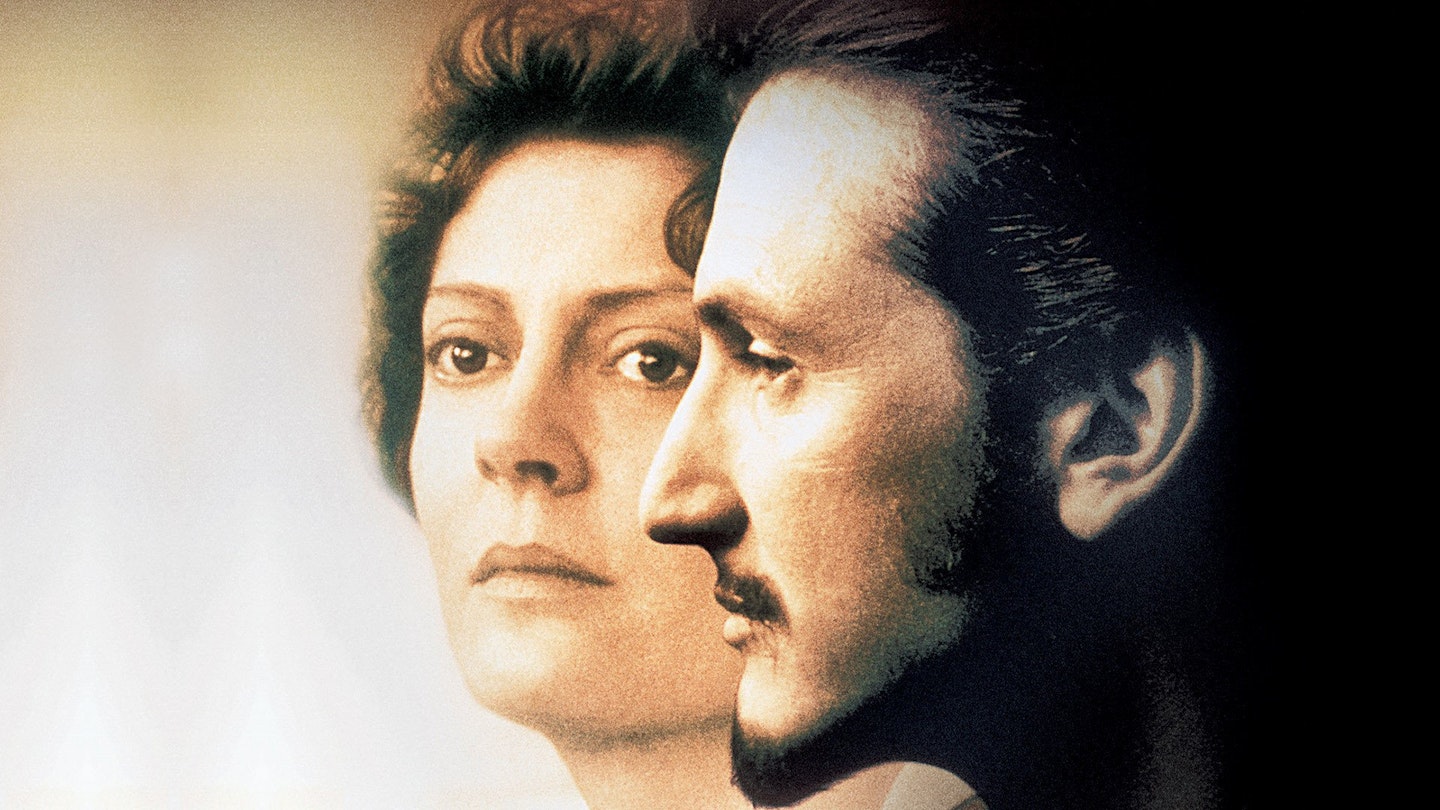Based on the real experiences and insights of Sister Helen Prejean, a Catholic nun in Louisiana whose community service took her into the state penitentiary's death house, the film explores moral truth, the consequences of murder, and the human need for revenge. Sister Helen (Sarandon) replies to a letter from lonely, frightened Matthew Poncelet (Penn), a condemned rapist and murderer awaiting execution. Despite her own misgivings and outside pressure to distance herself from him, she becomes his visitor, spiritual advisor and friend.
For nun and killer it is a remarkable journey. Poncelet is not charming or even likeable, nor is he a victim of injustice. His crime was heinous. He is repellent, bigoted trash. But Sister Helen is a woman centred on faith in God and humanity. Confronting his demons, she hopes to move him to take responsibility for his life, to face death with honesty.
Sarandon, as ever, is superlative. Penn is beyond superlatives. Unflinchingly he presents a cold, hard, despicable individual, then rips him inside out until the monster is revealed to be a human being. Their dual achievement is the true intimacy they develop despite the prison barriers of wire and window, Robbins skilfully working with the space between them.
Beyond these two and Sister Helen's fight for Poncelet's soul, Robbins gives enormous weight to the victims of the crime. The ordeal of the young couple murdered is glimpsed and, finally, remembered. The pain, grief and rage for vengeance in those who mourn them are dutifully respected. It may be regarded as a failing that Robbins' apparent lack of certainty in the ethical conflict laid out prevents him from verbalising an unequivocal pro or con answer. Instead, he very effectively forces the viewer to ask, with no little distress, is it ever right to kill?
